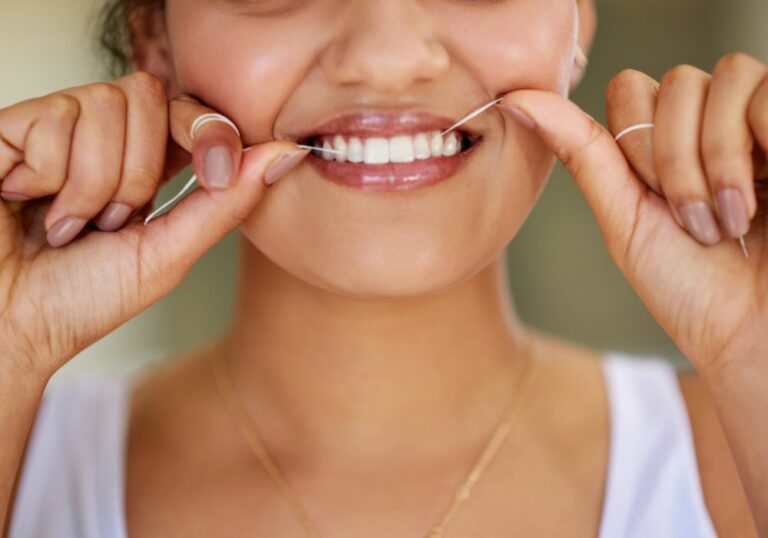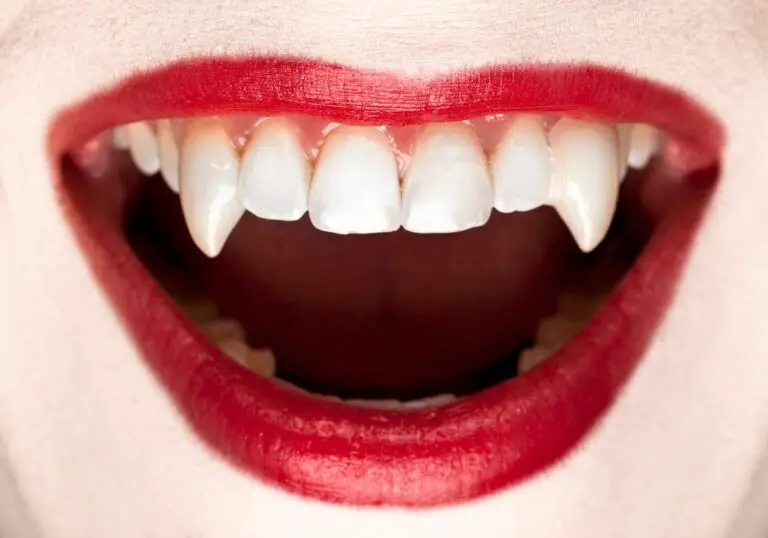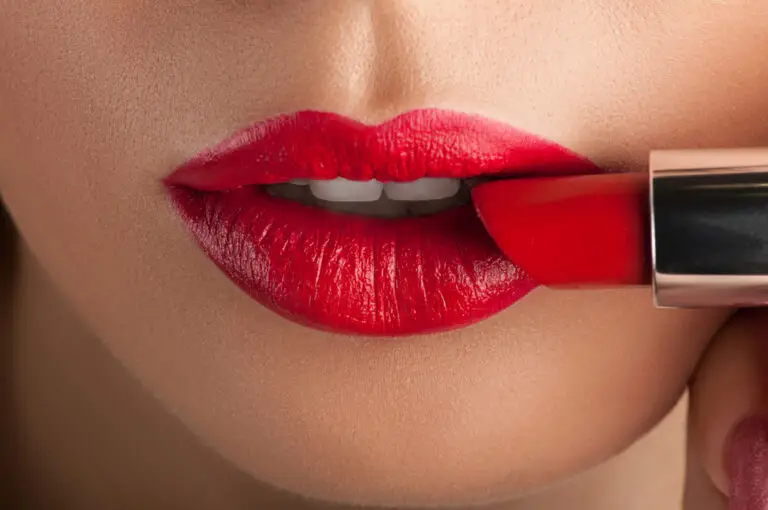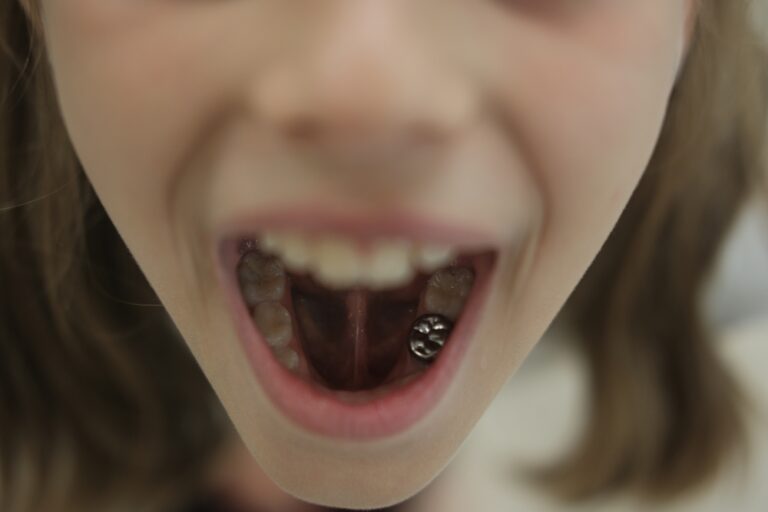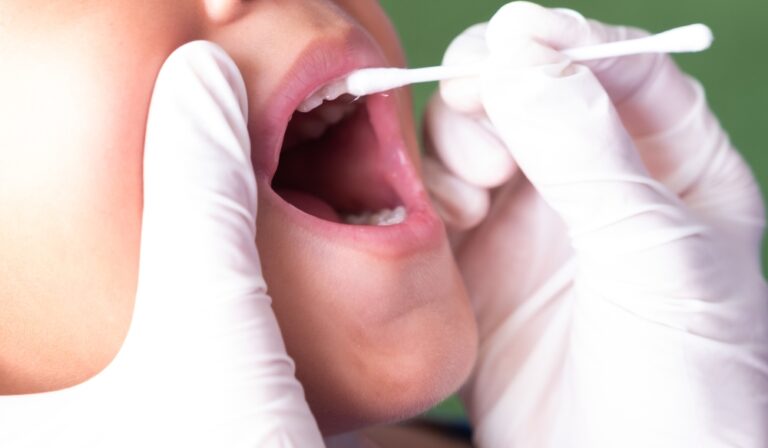When it comes to recovering from wisdom teeth extraction, it’s important to follow your dentist’s instructions carefully. One question many people have is when they can start using mouthwash again after the procedure. While mouthwash can be helpful in keeping your mouth clean and reducing bacteria, it’s important to wait until the right time to use it.
Typically, dentists recommend waiting at least 24 hours after wisdom teeth extraction before using mouthwash. This allows time for the blood clot to form and for the healing process to begin. Using mouthwash too soon can disrupt the clot and delay healing, leading to complications such as dry socket.
Once you’re ready to start using mouthwash again, it’s important to choose the right type. Alcohol-based mouthwashes can be too harsh on the sensitive areas of your mouth after wisdom teeth extraction. Instead, opt for a gentle, alcohol-free mouthwash that can help to soothe any discomfort and keep your mouth clean without causing irritation.
Understanding Wisdom Teeth
If you’re experiencing pain or discomfort in the back of your mouth, it could be due to your wisdom teeth. Wisdom teeth are the last set of molars to grow in, usually between the ages of 17 and 25. Some people have enough room for their wisdom teeth to grow in normally, while others may experience issues such as impaction, infection, or damage to surrounding teeth.
Impacted wisdom teeth occur when there is not enough room in your mouth for them to grow in properly. This can cause pain, swelling, and infection. In some cases, impacted wisdom teeth can also lead to damage to surrounding teeth, as well as cysts or tumors.
If you’re experiencing any of these issues, your dentist or oral surgeon may recommend that you have your wisdom teeth removed. This is a common procedure that involves extracting one or more wisdom teeth.
After the procedure, it’s important to take care of your mouth to promote healing and prevent infection. Your dentist or oral surgeon will likely provide you with specific instructions, but here are some general guidelines to follow:
- You should avoid using mouthwash on the day of your wisdom teeth removal.
- After the first day, you can start using mouthwash as directed by your dentist or oral surgeon.
- Be sure to rinse your mouth gently, and avoid spitting forcefully or using a straw, as this can dislodge the blood clot that forms in the extraction site.
- You may also be advised to avoid smoking, drinking alcohol, or eating certain foods for a period of time after the procedure.
By following these guidelines and taking good care of your mouth, you can help ensure a smooth recovery after wisdom teeth removal.
Why Mouthwash is Important
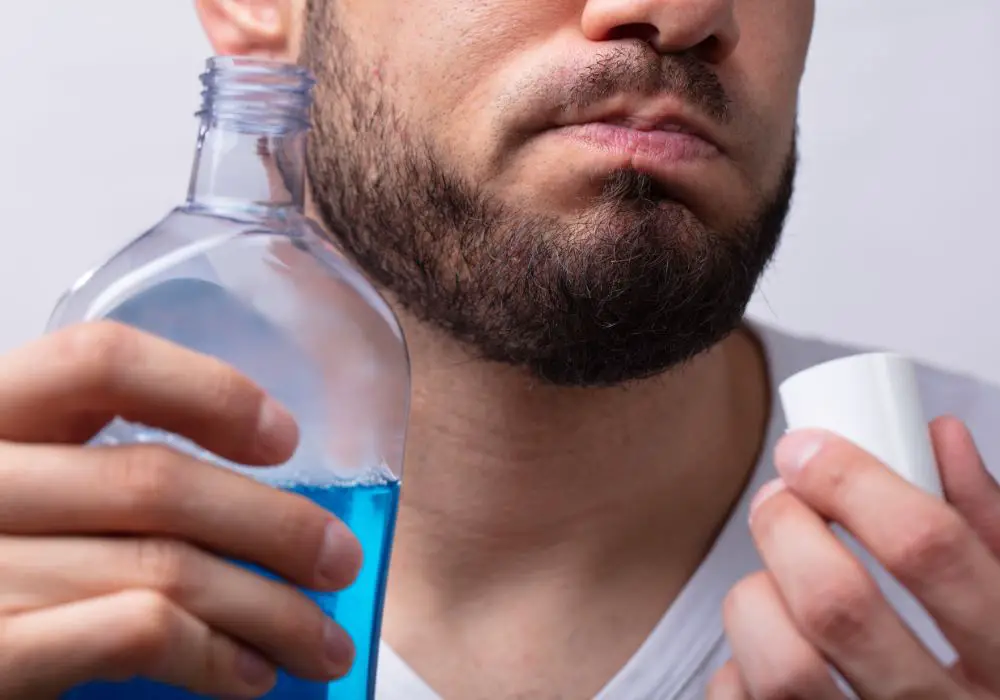
Using mouthwash after wisdom teeth extraction is an important step in your oral hygiene routine. It can help to reduce the risk of infection and inflammation in the mouth. Mouthwash can also help to reduce the amount of bacteria that may linger in the mouth after the procedure. It can also help to control bad breath and promote faster healing of the gums.
Mouthwash is a liquid solution that can be used to rinse your mouth. It contains antiseptic agents that can help to kill bacteria and prevent infections. Using mouthwash after wisdom teeth extraction can help to reduce the risk of infection and promote faster healing of the gums.
Mouthwash can also help to control bad breath. After wisdom teeth extraction, you may experience bad breath due to the presence of bacteria in your mouth. Using mouthwash can help to control bad breath and leave your mouth feeling fresh and clean.
It is important to note that mouthwash should be viewed as an addition to daily brushing and flossing and not as a replacement. You should continue to brush and floss your teeth regularly to maintain good oral hygiene. However, using mouthwash after wisdom teeth extraction can provide additional benefits and help to promote faster healing of the gums.
Overall, using mouthwash after wisdom teeth extraction is an important step in your oral hygiene routine. It can help to reduce the risk of infection and inflammation in the mouth, control bad breath, and promote faster healing of the gums.
Ideal Time to Start Using Mouthwash
After getting your wisdom teeth extracted, you may be wondering when you can start using mouthwash. It is essential to wait until the healing process is complete before using mouthwash to avoid any irritation or complications. Here are some guidelines to help you determine the ideal time to start using mouthwash after wisdom teeth extraction.
Wait for at least 24 hours
Immediately after getting your wisdom teeth extracted, you should avoid using mouthwash for at least 24 hours. This is to allow the blood clot to form and prevent any bleeding. Using mouthwash too soon can dislodge the blood clot, leading to a painful condition called dry socket.
Consult with your dentist
Your dentist will give you specific instructions on when to start using mouthwash after wisdom teeth extraction. The healing process varies from person to person, and your dentist will provide personalized recommendations based on your needs. It is crucial to follow your dentist’s instructions to avoid any complications.
Use a gentle mouthwash
When you start using mouthwash after wisdom teeth extraction, it is essential to use a gentle, alcohol-free mouthwash. Avoid using mouthwash with alcohol as it can cause irritation and delay the healing process. You can use a saline solution or a mouthwash recommended by your dentist.
Wait for complete healing
It is best to wait for complete healing before using mouthwash regularly. Complete healing can take up to two weeks, depending on the individual’s healing process. Once the healing process is complete, you can start using mouthwash regularly to maintain good oral hygiene.
In summary, it is crucial to wait for at least 24 hours after wisdom teeth extraction before using mouthwash. You should consult with your dentist and use a gentle, alcohol-free mouthwash to avoid any complications. Once the healing process is complete, you can start using mouthwash regularly to maintain good oral hygiene.
Precautions While Using Mouthwash
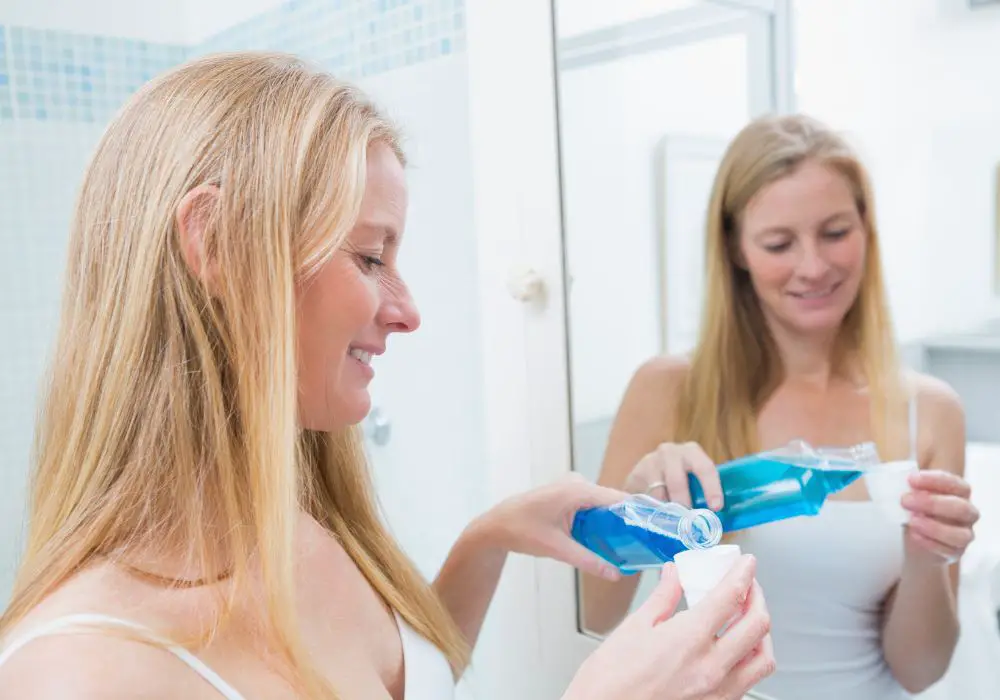
When it comes to using mouthwash after wisdom teeth removal, there are a few precautions you should take to ensure a smooth recovery. Here are some tips to keep in mind:
Avoiding Alcohol-Based Mouthwash
While alcohol-based mouthwash can be effective at killing bacteria, it can also cause irritation and dryness in the mouth. This can be especially problematic after wisdom teeth removal, as the mouth may already be dry and sensitive. To avoid further irritation, it’s best to avoid alcohol-based mouthwash for at least the first week after your surgery.
Proper Rinsing Technique
When using mouthwash after wisdom teeth removal, it’s important to be gentle and avoid vigorous rinsing. This is because the extraction sites may still be healing and vigorous rinsing can dislodge blood clots and delay the healing process. To properly rinse your mouth, follow these steps:
- Fill a small cup with a recommended mouthwash solution.
- Take a small sip of the mouthwash and swish it around in your mouth for 30 seconds.
- Spit the mouthwash out gently into the sink.
- Repeat steps 2 and 3 until you’ve used the recommended amount of mouthwash.
By following these precautions, you can help ensure a smooth and speedy recovery after wisdom teeth removal.
Benefits of Using Mouthwash
Using mouthwash can be a great way to improve your oral hygiene and maintain healthy teeth and gums. Here are some of the benefits of using mouthwash:
- Kills bacteria: Mouthwash works by reaching areas of the mouth that are difficult to clean with a toothbrush and floss, and it can help to reduce bad breath, prevent cavities, and maintain healthy gums. Most mouthwashes are antiseptic, which make them very useful for eliminating bacteria, particularly after a procedure that has left a wound like a tooth extraction.
- Freshens breath: Mouthwash can help to freshen your breath and leave your mouth feeling clean and refreshed. This is especially important if you have bad breath or are prone to halitosis.
- Prevents cavities: Some mouthwashes contain fluoride, which can help to prevent cavities and strengthen your teeth. This is particularly important if you are at risk of developing cavities or have a history of dental problems.
- Reduces plaque: Mouthwash can help to reduce the amount of plaque on your teeth and gums, which can help to prevent gum disease and other oral health problems.
- Improves overall oral health: By using mouthwash regularly, you can improve your overall oral health and reduce your risk of developing dental problems. This can save you time, money, and discomfort in the long run.
Overall, using mouthwash can be a great way to improve your oral hygiene and maintain healthy teeth and gums. However, it is important to use mouthwash correctly and to choose a product that is appropriate for your needs. If you have any questions or concerns about using mouthwash, be sure to talk to your dentist or dental hygienist.
Alternatives to Mouthwash
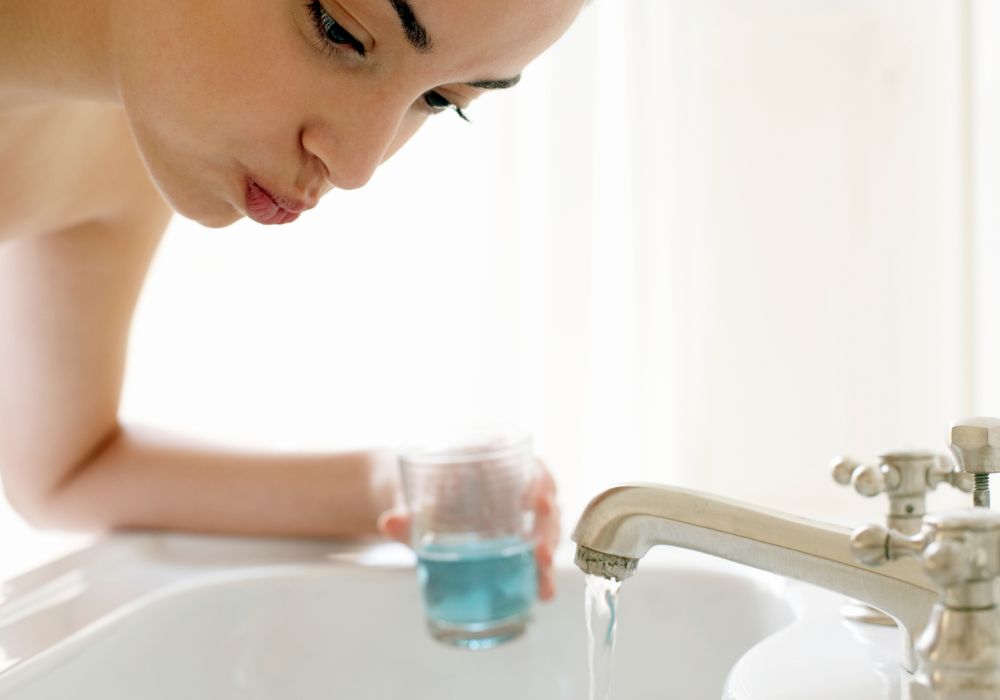
If you are looking for alternatives to mouthwash after wisdom teeth extraction, there are a few options you can consider. Here are two popular alternatives:
Salt Water Rinse
A salt water rinse is a simple and effective way to keep your mouth clean after wisdom teeth removal. Salt water can help to reduce inflammation and promote healing in the mouth. To make a salt water rinse, mix half a teaspoon of salt with eight ounces of warm water. Swish the solution around your mouth for 30 seconds and then spit it out. You can repeat this process several times a day, as needed.
Herbal Mouth Rinses
Herbal mouth rinses are another alternative to traditional mouthwash. These rinses are made with natural ingredients like peppermint oil, tea tree oil, and chamomile. They can help to reduce inflammation, soothe pain, and freshen your breath. You can find herbal mouth rinses at most health food stores or online. Be sure to read the labels carefully to make sure you are getting a product that is safe and effective.
While these alternatives can be helpful, it’s important to remember that they are not a replacement for proper oral hygiene. Be sure to continue brushing your teeth and flossing regularly to keep your mouth healthy and clean. If you have any concerns about your oral health after wisdom teeth removal, be sure to talk to your dentist or oral surgeon.
Frequently Asked Questions
When is it safe to use mouthwash after wisdom teeth removal?
It is recommended to wait at least 24 hours after wisdom teeth removal before using mouthwash. This is because the mouthwash may irritate the wound and cause bleeding. It is important to follow your dentist’s instructions regarding when to start using mouthwash.
What kind of mouthwash is safe to use after wisdom teeth extraction?
Most dentists recommend using an alcohol-free, antiseptic mouthwash after wisdom teeth extraction. This is because alcohol can irritate the wound and delay the healing process. Look for a mouthwash that contains chlorhexidine or cetylpyridinium chloride, as these ingredients can help reduce the risk of infection.
Can I use non-alcohol mouthwash after wisdom teeth removal?
Yes, non-alcohol mouthwash is generally safe to use after wisdom teeth removal. However, it is important to check with your dentist before using any mouthwash, as some types may not be suitable for your specific situation.
Is Chlorhexidine mouthwash safe to use after wisdom teeth extraction?
Yes, chlorhexidine mouthwash is safe to use after wisdom teeth extraction. This type of mouthwash is often recommended by dentists because it has strong antiseptic properties that can help prevent infection. However, it is important to follow the instructions carefully and not to use it for too long, as it can cause staining of the teeth.
When can I start using Corsodyl mouthwash after wisdom teeth removal?
Corsodyl mouthwash contains chlorhexidine and is safe to use after wisdom teeth removal. However, it is important to wait at least 24 hours after the procedure before using it. Your dentist may also recommend using a weaker concentration of Corsodyl or using it for a shorter period of time to avoid staining of the teeth.
Is using mouthwash helpful for wisdom tooth pain relief?
Mouthwash can help relieve wisdom tooth pain to some extent, but it is not a substitute for proper dental care. If you are experiencing severe pain or swelling after wisdom teeth removal, it is important to contact your dentist for advice. They may recommend painkillers or other treatments to help manage your symptoms.

